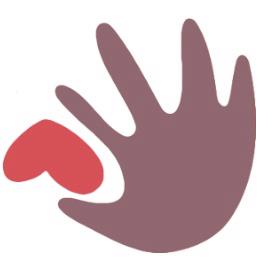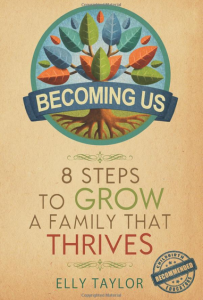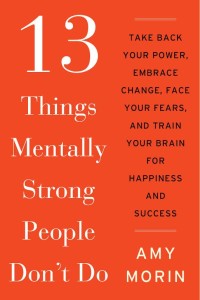 Discover how some very successful mental health professionals use blogging, social media, and other technologies as powerful tools for their therapy practices.
Discover how some very successful mental health professionals use blogging, social media, and other technologies as powerful tools for their therapy practices.
Dawn Friedman, MSEd LPC, is a clinical counselor specializing in issues surrounding family building, including infertility, adoption, pregnancy, and parenting. An early adopter of technology, Dawn started a blog that became the basis of her strong online presence and has helped her grow a thriving practice. Read about her story here:
When and how did you first start putting time and effort into maintaining a strong online presence?
Back in 2001, I started a personal blog that I continued for about ten years. In that time, blogging went from a fairly introverted way to journal to a massive (and competitive) industry. Because I had started early, I got to see the field of blogging really take off and learn it as it happened. So when I turned to blogging for a private practice I hadn't opened yet (about a year before I planned to launch), I already had a strong understanding of how blogging and other social media work.
Starting my professional blog a year before my practice opened gave me time to play around with the design (in WordPress) and think about how to lay it all out. It also gave me the space to find my blogging voice. I wasn't sure how to switch from personal writing to more careful disclosure as a therapist, and it took some time and bumbling around to figure out how to be friendly, open, and myself without giving away so much information that it might overwhelm a potential client. I started out way too impersonal and over time let myself loosen up and have more fun with what I wrote. The advantage, too, of starting a year in advance is that having a living, breathing web site that was already getting some traffic made it much easier to start showing up in local searches once I was ready to launch. The blog was already going, and I just needed to focus on creating the pages that described my services, hosted my paperwork, etc.
Please describe what social platforms you currently use.
I used to do social media consulting on the side back in my personal blogging days. What I told clients was to go and claim your online real estate, which means grab the Twitter handles, the Instagram names, etc. Even if you're not going to use them, you don't want someone else to have them. So technically, I have most of the social platforms, but I don't use them all. Many of them you can keep alive passively (WordPress blogs will automatically post to Twitter, LinkedIn, Google Plus and Facebook if you're using JetPack). Once you have all your accounts lined up, you can figure out which ones make the most sense for you to put more work into.
For me, I put the greatest effort into my blog and website. I've worked very hard on my search engine optimization (SEO) and am on the front page for most of the local searches that I've targeted. The second place where I put in effort is on my Facebook page. I have a professional page and a personal account. My personal account is on lockdown with the privacy settings but I assume anything posted on the internet could potentially show up on a client's screen, so I bear that in mind when I'm posting. That said, I've found that Facebook is the social media site that will drive the most traffic -- especially local traffic, which is what I want -- to my site. I have my blog automatically post new updates to my professional page, and then I share from my page to my personal account. Since doing this, I've seen an increase in traffic, and more people have liked my page. So overall, I do invest some time into Facebook, but I'd rather spend more energy on my blog. It's a very personal choice, and there's no right way for everybody.
About how much time do you devote to your online presence? How do you balance it with your other work responsibilities?
Back in my journaling days, I would blog daily. Now, if I can post six to eight times a month, I'm pretty happy. I'd like to post more because I really enjoy it, but I just get too busy. Other than putting out new content, I also spend a few hours each month updating my site, playing around with my theme, changing out my front page picture, and looking at my stats to see where I can consolidate pages or tighten up my menu. I keep an eye on the number of hits the different pages get. For example, I realized that the part of my site that people clicked the least amount was "Services," so I turned it into a menu header. This led to an increase in clicks directly to services people are interested in. I also am always tweaking and adding things that might help my search engine optimization, which I think is a lot of fun because it's like a game!
What kinds of things do you use to inspire your content creation; what do you write about?
I usually write about things that tend to come up a lot in sessions. For example, many of the children I see struggle with anxiety, and I get quite a few questions about that subject too, so I wrote a three-part series on child anxiety. I also write about books I've read -- counseling related or not -- share fun music videos, and highlight local events that my potential and current clients might be interested in.
I will add that sharing local resources helps me in several ways: It gives me a writing topic, it allows me to share good information with readers who will welcome it, it lets me to network to get that resource up on my blog, and it improves my local SEO. I mean, it's fun to get readers from all over the world but unless you live within driving distance to my office, you're unlikely to become a client or refer me to someone you know. Sharing local events makes it clear that I want to be a resource for my community here in town, and it's also much more likely to be shared by locals on Twitter or Facebook. Win/win!
Back when I did social media consulting, I'd tell people to share the kinds of things you might find yourself talking about at a dinner party. What interesting, fun anecdotes do you have? What thought provoking things have you come across? Even though things like SEO and header tags are important, sometimes you have to put aside the worry and just write. Find your voice first, and your blog will benefit you even if you don't do all that social media stuff "right." Trust me on this. If people like what you write, they will share it, and that will help your traffic. Also, people who click to you from a directory or a Google search will have the opportunity to get to know you, which will increase the chance that the people who call you will be a good fit for your practice.
Just write!
How do you best balance personal and professional in your online activities? Please give examples.
This was a tricky thing to figure out, and it's something that I still reflect on regularly since I think ethics demand that we always be thoughtful and aware about what we share and how that might impact our clients. I do know that I tend to be more comfortable with disclosure than some therapists, and I think that's a matter of personal style. On the other hand, I've seen therapists share way, way more than I'd be willing to do (And I say this having lots of published essays out there that will give any client with Google the opportunity to learn my kids' names, my political beliefs and my personal philosophies on a whole bunch of things).
Generally, I've decided that I will share anything on my blog that I might share in a session. For example, I might write about a parenting challenge I've faced personally to illustrate a developmental phase presenting in a client's family because that's something we might talk about together in my office (Note: I always get my kids' permission before posting stories about them). When I want to write about something that might make a client even slightly worry that I'm talking about him/her, I'll write about a fictional character. In the series on anxiety, instead of using a fake Jane Doe, (which might lead a client to think I'm writing about his or her child) I wrote about Goldilocks. This allows me to illustrate ideas without threatening anyone's therapeutic relationship. I've written about Harriet the Spy and Ramona Quimby, too, to talk about kids. Other therapists might like using characters on television shows or movies. Using fictional characters not only protects clients from thinking they're seeing themselves in what you write, it's also a fun way to call out cultural touchstones that speak to you.
What is some tangible evidence that your online presence has grown your business?
I've had many clients come to see me because of something they've read on my blog. Someone will share something I wrote on Facebook, and another person will see it, click through, and see that I'm a therapist and then call me. I've also had people go looking for a therapist and stop to read my blog first. Sometimes people tell me that they've read my blog for several weeks or months before making that leap. Having that updating, ongoing resource made it easier for them to feel safe making the call. Some clients say that they want to see me even though I don't take their insurance because they like what I said about a particular topic or feel like they would be comfortable with me. In other words, they want to see me, not just whatever therapist answers the phone first.
Also my blog and attention to SEO has kept me on the front page of local Google searches for my target market. That's huge and has definitely been a tremendous help in my practice building. It's not just potential clients, either. Referral sources use Google, too.
Besides attracting clients, what other ways has your strong online presence helped you?
My blog has helped me secure speaking and writing gigs. I've stepped way, way back on my professional writing since working on my practice, but both my personal blog and professional blog have brought editors to me. Networking is also easier when you have a great web site. It's fun to meet someone for coffee and have them say, "I already know this about you..." It makes starting those conversations easier.
What have been some of the biggest challenges you’ve encountered creating and maintaining your online presence?
There were some technical challenges I had when I first started my professional blog. I was using the URL I had used for my personal blog so that I wouldn't lose out on traffic. I had to change the URL and needed a 301 redirect to maintain that traffic. This is one of those things that sounds scary and complicated, but is actually pretty easy. There's a great explanation of how to do this on Wordpress if you're ever in need.
Beyond that, it's easy to become overwhelmed or to think you need to use every bell and whistle available. I tend to try out new things for a little while, then drop them if they're not useful. Part of this is that I just like learning this stuff, but I do have to watch my time constraints. It's way more fun to me to create a great, shareable image on Canva than it is to write up my case notes, so sometimes I reward myself with online tweaking when I'm all caught up on paperwork.
Also it's tempting to save things. Like save that great metaphor for my next talk, or save that terrific example for writing I might publish elsewhere. I've since learned that the more I give, the more I have to give. Memoirist Annie Dillard said:
"One of the things I know about writing is this: spend it all, shoot it, play it, lose it, all, right away, every time. Do not hoard what seems good for a later place in the book or for another book; give it, give it all, give it now. The impulse to save something good for a better place later is the signal to spend it now. Something more will arise for later, something better. Anything you do not give freely and abundantly becomes lost to you. You open your safe and find ashes."
It's true. The more you write, the more you share, the more you will create. To hold back is a little bit like never adding weights to your lifting routine because you want to save it for when you're stronger. It's the exact opposite really.
What tips or resources can you recommend to help therapists who are new to the online world of blogging, social media, SEO, etc.?
I really like Amy Lynn Andrews for her series on starting a blog. I send her information to people all of the time. It's clear, it's easy to implement, and it works. I also like her newsletter for staying up to date on different tools that might be useful. She's not specific to counseling, but I always learn something, and even though she's super beginner-friendly, she also points to other resources for when you're ready to dig deeper into social media and SEO.
Dawn Friedman MSEd LPC
Website: www.BuildingFamilyCounseling.com
Facebook: www.facebook.com/BuildingFamilyCounseling









As healers, we genuinely like to do our work. Guiding clients through the therapy process and seeing them make progress is why we do what we do. But if you're in private practice, you know there's a lot going on in the back end and that it's crucial to run an efficient and organized business.